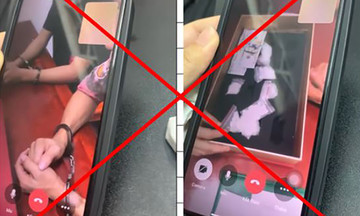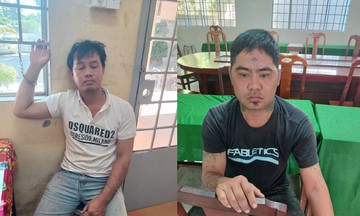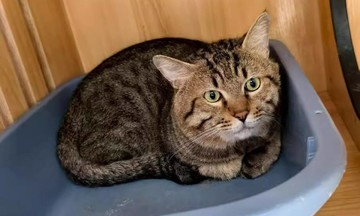At the regular government press conference on 3/7, Major General Nguyen Quoc Toan, Chief of the Ministry of Public Security Office and spokesperson, announced Phuong's arrest for "producing and trading counterfeit goods." The arrest is related to a large-scale case of smuggling and producing counterfeit cooking oil.
In this case, Nguyen Trong Nang (director and legal representative of Minh Phu Food Import-Export Joint Stock Company and An Duong Production and Trading Company) and Do Thi Ngoc Mai (legal representative of An Hung Phuoc Import-Export Trading Company and Phuoc Thanh Agricultural Products Import-Export Company) were also arrested for smuggling.
According to General Toan, this is a large-scale production and sale of counterfeit vegetable oil, "with dangers and consequences that cannot yet be fully assessed for consumer health."
Regarding a separate case involving the production and sale of counterfeit Hiup milk, the investigative police agency has prosecuted 10 individuals for two groups of violations: violating accounting regulations with serious consequences, and producing and trading counterfeit food products.
In addition, during a focused campaign against counterfeit goods, police agencies have prosecuted 124 cases with 297 defendants and administratively handled 944 cases involving 968 individuals.
 |
Major General Nguyen Quoc Toan. Photo: Nguyen Phong |
Major General Nguyen Quoc Toan. Photo: Nguyen Phong
Mr. Duc said that the methods of smuggling, producing, and trading counterfeit goods are becoming increasingly sophisticated, such as establishing shell companies and complex business ecosystems. The import of raw materials, production of counterfeit goods, organization of advertising, and consumption are also very sophisticated, with various measures taken to counter law enforcement.
According to investigators, Nhat Minh Food Production and Import-Export Company imported vegetable oil intended for animal feed production, then relabeled it as OFOOD brand cooking oil for human consumption. Tens of thousands of tons of this counterfeit oil were sold, primarily distributed to industrial kitchens, restaurants, and food processing villages.
On 25/6, the Food Safety Administration stated that this counterfeit oil "poses a serious risk to public health." Oil used in animal feed is essentially crude oil extracted from materials like peanuts and soybeans, but it hasn't undergone a complete refining process. This type of oil can contain many impurities and toxins unsuitable for human consumption. Long-term consumption can lead to health problems like poisoning, liver and kidney damage, accumulation of toxins in the body, and even an increased risk of chronic diseases.
The Administration recommends that food production and business establishments, especially collective kitchens and ready-meal providers, request detailed information about the product declaration and raw materials from their suppliers when using oil and not rely solely on packaging and labels.
"Establishments must not use ingredients for purposes other than those declared in food processing, even with complete invoices and documents," a representative of the Food Safety Administration emphasized. If anything suspicious is discovered, people should immediately notify the authorities.












